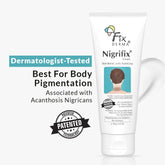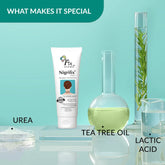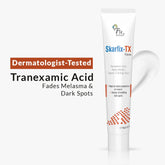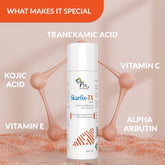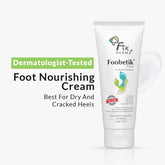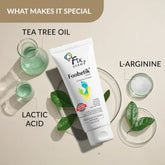Common Myths About Hyaluronic Acid Debunked: What You Need to Know
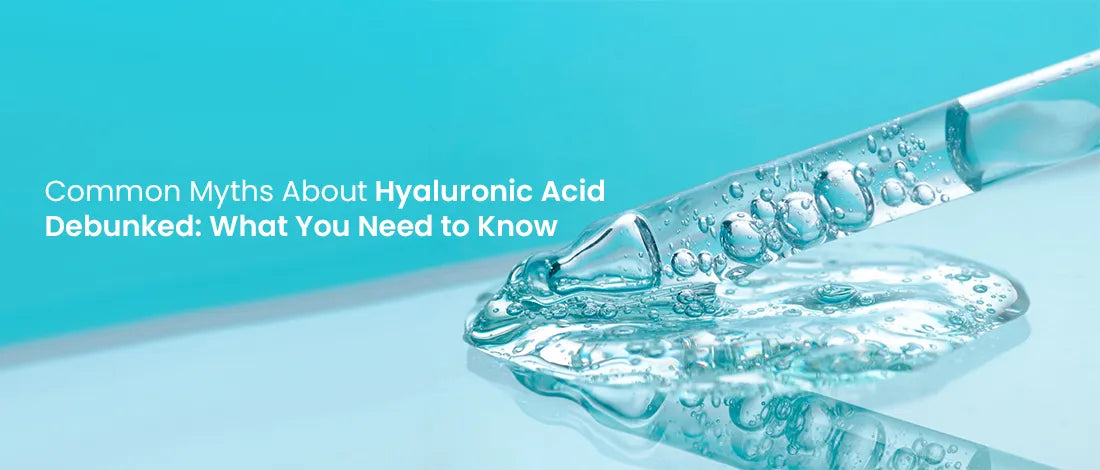
Hyaluronic acid (HA) is now a popular ingredient in skincare products, known for its excellent ability to moisturize and refresh the skin. It's used in various products like serums, moisturizers, and even makeup. However, as more people use it, more myths about it are spreading. These misunderstandings can cause confusion and incorrect use. In this article, we'll clear up these common myths and provide accurate information to help you make informed choices for your skincare.

What is Hyaluronic Acid?
Hyaluronic acid (HA) is a key molecule our skin naturally contains. It's famous for its amazing ability to hold onto water, as much as 1,000 times its weight in water. It helps to keep the skin hydrated, flexible, and looking young. By retaining water, hyaluronic acid makes the skin look plump, soft, and bright. As we age, the amount of HA in our skin goes down, so it's important to use products with hyaluronic acid daily to keep our skin looking young and healthy.
Myth 1: Hyaluronic Acid is a Harsh Chemical
Debunked: A common misunderstanding is that hyaluronic acid is a man-made or strong chemical. Hyaluronic acid is a molecule that naturally exists in our bodies, found in the skin, eyes, and connective tissues, where it works as an important lubricant and cushion. The hyaluronic acid used in skincare products usually comes from natural sources or is made through bio-fermentation, making it safe and gentle for all skin types. Knowing that hyaluronic acid is a natural substance can help ease worries and encourage more people to use it for its amazing ability to hydrate the skin.
Why This Matters: Understanding that hyaluronic acid is a natural and mild component helps to ease concerns about using it, allowing people to confidently add it to their skincare regimen.
Myth 2: Hyaluronic Acid is Only for Dry Skin
Debunked: It’s a common belief that hyaluronic acid is only beneficial for dry skin, but this couldn’t be further from the truth. Hyaluronic acid is a humectant, meaning it draws moisture from the environment into the skin, making it suitable for all skin types, including oily and combination skin.
For Oily Skin: Hyaluronic acid helps regulate moisture levels, preventing the skin from overproducing oil, a common cause of breakouts. Lightweight formulations like serums or gels provide hydration without clogging pores, making HA an excellent choice for those with oily skin.
For Combination Skin: Hyaluronic acid can be applied to specific areas where the skin feels dry, offering targeted hydration that doesn’t overwhelm the oilier parts of the face.
Pro Tip: Look for products like Fixderma's Hyaluronic Acid Collection that offer different formulations to cater to various skin types, ensuring everyone can benefit from HA’s hydrating properties.
Myth 3: Hyaluronic Acid Makes Skin Break Out
Debunked: Many people worry that adding extra moisture, particularly on acne-prone skin, might lead to breakouts. However, hyaluronic acid is non-comedogenic, meaning it doesn’t clog pores. Using hyaluronic acid for skin hydration can actually help prevent acne. When the skin is dehydrated, it may produce excess oil to compensate, leading to breakouts.
Benefits for Acne-Prone Skin:
- Maintains the skin’s moisture balance, reducing the risk of excess sebum production.
- Calms and soothes irritated skin, helping to minimize the appearance of blemishes.
Myth 4: Hyaluronic Acid is Only Effective in Humid Climates
Debunked: A common misconception is that hyaluronic acid is only effective in humid climates, where it can easily draw moisture from the air. While it’s true that hyaluronic acid is a powerful humectant, it doesn’t rely solely on environmental humidity to be effective. Hyaluronic acid also helps lock in moisture from your skincare products, making it beneficial in any climate.
How to Use HA in Different Climates:
- Humid Climates: Apply hyaluronic acid after cleansing and follow up with a light moisturizer to seal in the moisture, ensuring your skin stays hydrated without feeling heavy.
- Dry Climates: In drier environments, layer hyaluronic acid under a richer moisturizer or an occlusive like facial oil to prevent water loss and provide lasting hydration.
- Extra Tip: If you live in an extremely dry climate, apply hyaluronic acid to damp skin to boost its hydrating effects, ensuring your skin stays supple and moisturized.
Myth 5: All Hyaluronic Acid Products are the Same
Debunked: It's a mistake to think that all hyaluronic acid products deliver the same benefits. The effectiveness of hyaluronic acid for the skin largely depends on the molecular size of the HA used in the formulation. Different molecular weights affect how deeply the hyaluronic acid can penetrate the skin.
Different Molecular Weights:
- High Molecular Weight: These larger molecules remain on the skin’s surface, creating a barrier that helps lock in moisture.
- Low Molecular Weight: Smaller molecules penetrate deeper into the skin, providing hydration where it’s most needed.
- Combination Formulas: Products that combine high and low molecular weights offer both immediate surface hydration and long-lasting moisture.
Why Choose Multi-Molecular Weight Products?
Products from Fixderma’s Hyaluronic Acid Collection use multi-molecular formulations, ensuring that your skin benefits from both surface-level hydration and deeper moisture, providing a comprehensive and well-rounded skincare experience.
Myth 6: Hyaluronic Acid Alone is Enough for Moisturizing
Debunked: Hyaluronic acid is excellent at attracting moisture, but relying on it alone isn’t enough to fully moisturize the skin. For comprehensive hydration, hyaluronic acid should be combined with other moisturizing ingredients.
The Role of Occlusives and Emollients:
- Occlusives: Ingredients like squalane or shea butter create a protective barrier on the skin, preventing moisture loss.
- Emollients: Ingredients such as ceramides soften and smooth the skin, helping to repair and strengthen the skin barrier.
Layering Tip: For optimal hydration, apply hyaluronic acid on damp skin, then follow up with an emollient-rich moisturizer to lock in moisture and ensure lasting hydration.
Myth 7: Hyaluronic Acid Can Over-Hydrate the Skin
Debunked: Concerns about hyaluronic acid causing over-hydration, leading to skin swelling or weakening the skin barrier, are largely unfounded. The skin has a natural ability to regulate moisture absorption and will only take in what it needs.
Understanding Your Skin’s Needs:
- Adjust the amount of hyaluronic acid, based on your skin’s condition and how it responds
- If your skin feels excessively hydrated, you can reduce the frequency of application or opt for lighter products.
Key Takeaway: Hyaluronic acid is a versatile ingredient that can be tailored to meet your skin’s unique needs. Incorporating HA into your routine ensures balanced and effective hydration without the risk of over-hydration.
Myth 8: Hyaluronic Acid is Too Expensive
Debunked: The idea that hyaluronic acid products are always costly is not accurate. Hyaluronic acid is available at different prices, and you can find good-quality HA products that are reasonably priced. Many inexpensive choices provide great hydration and still work well.
Budget-Friendly Options:
- Fixderma offers a selection of hyaluronic acid products that combine both efficacy and affordability, making it easy to incorporate HA into any skincare routine.
Smart Shopping Tips:
- Check for products with transparent labelling, indicating HA concentration and types.
- Focus on ingredient quality rather than just price to ensure you’re getting value for your money.
Myth 9: Hyaluronic Acid is a One-Size-Fits-All Solution
Debunked: While hyaluronic acid is highly effective for many, it’s not a universal fix that works the same for everyone. Individual factors such as skin type, specific concerns, and environmental conditions influence how HA performs.
Personalizing Your HA Routine:
- For Ageing Skin: Combine hyaluronic acid with retinol or peptides to enhance anti-ageing benefits.
- For Sensitive Skin: Choose HA products that include calming ingredients like aloe vera or chamomile.
- For Hyperpigmentation: Pair HA with vitamin C to boost hydration while addressing dark spots.
Consider the Effects of Hyaluronic Acid
Hyaluronic acid is a very effective ingredient for skincare, but it's important to know how it really works and to clear up some misunderstandings about it. To get the most out of hyaluronic acid, use it properly and choose products that match your skin type and needs. This way, you can have moisturized, healthy, and glowing skin. Keep in mind that skincare is not the same for everyone; customize your routine to fit your specific needs. Now that you understand how hyaluronic acid works, you can make better choices and add it to your daily skincare routine with confidence. Experience the amazing results of hyaluronic acid and take your skincare routine to the next level.
FAQs
- Will Hyaluronic Acid Make My Skin Too Oily or Cause Breakouts?
No, hyaluronic acid is non-comedogenic, meaning it won’t clog your pores. Instead, it helps balance your skin’s moisture levels, which can reduce oil production and prevent breakouts. It's suitable for all skin types, including oily and acne-prone skin, because it provides lightweight hydration without adding excess oil.
- Can I Use Hyaluronic Acid in a Dry Climate, or Is It Only Effective in Humid Areas?
Yes, you can use hyaluronic acid in any climate. While it's true that hyaluronic acid attracts moisture from the environment, it also locks in moisture from your skincare products. To get the best results in dry climates, apply hyaluronic acid to damp skin and follow up with a rich moisturizer to seal in hydration.
- Is It True That All Hyaluronic Acid Products Are the Same?
Not at all. The effectiveness of hyaluronic acid depends on its molecular weight. Products with different molecular weights can provide both surface-level hydration and deeper moisture. For comprehensive skincare, choose products with multi-molecular weight hyaluronic acid, to ensure your skin gets the best.
